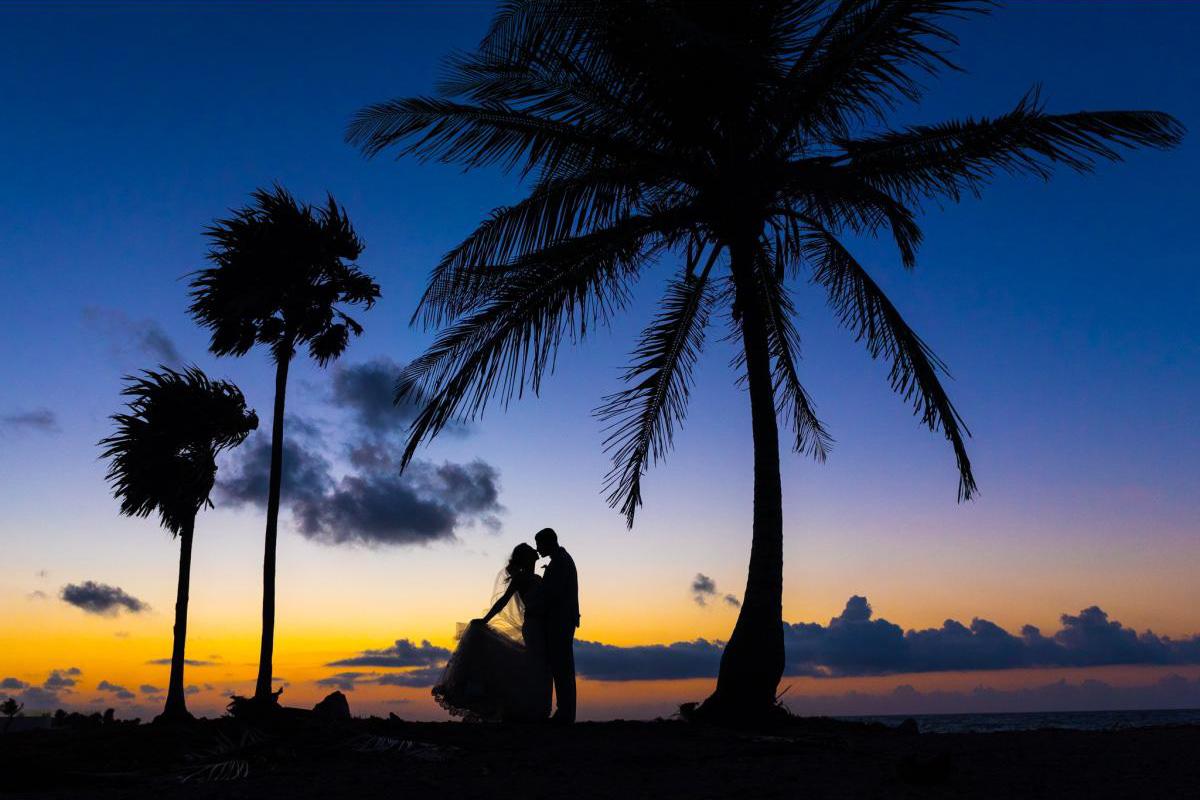All-inclusive destination weddings are a dream for many Canadian couples—and for good reason. They blend travel with celebration, simplify logistics, and often cost less than a traditional wedding at home. But “all-inclusive” doesn’t always mean everything is taken care of.
If you're planning a destination wedding in Mexico, the Caribbean, or beyond, this guide walks you through every major decision—timelines, travel, photographers, resort policies, and the hidden fees no one warns you about. We’ve also included insight from Canadian photographers who’ve seen it all.
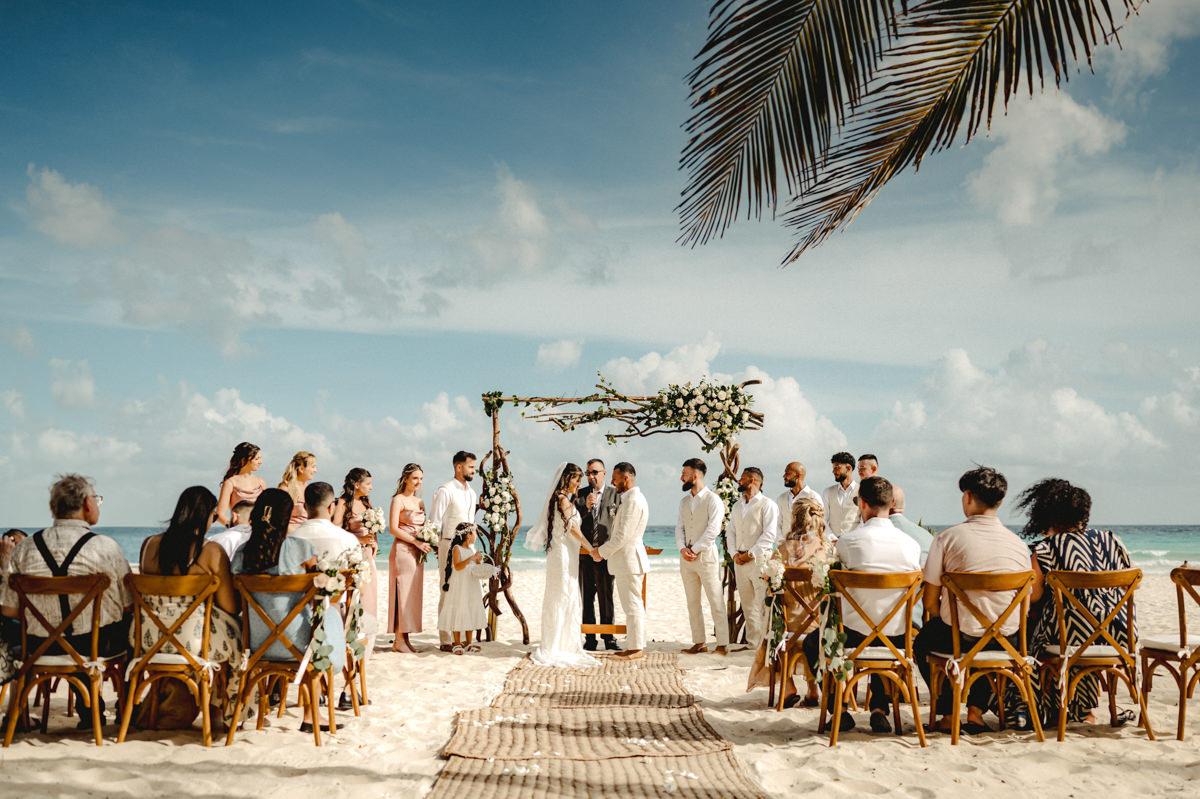
What Is an All-Inclusive Destination Wedding?
An all-inclusive destination wedding is typically hosted at a resort where your accommodation, ceremony, reception, food, and basic planning are bundled into a single package.
Pros:
- Fewer decisions to make
- Travel and lodging in one place
- Scenic beachfront or tropical settings
- Often more affordable for smaller guest lists
Cons:
- Less control over vendors
- Language or cultural communication gaps
- Generic photography from on-site teams
- Potential upsells or hidden charges
Want to know which location might be right for you? Read Why Choose Mexico’s Pacific Coast for Your Destination Wedding or Why Choose the Dominican Republic.
When Should You Start Planning?
Planning a resort wedding takes longer than you might think—especially if you want the best travel deals and top-choice vendors.
General Timeline:
- 12–16 months out: Choose your destination and set a rough budget
- 10–12 months out: Book your resort and secure group travel rates
- 6–9 months out: Begin working with the resort coordinator
- 6 months out: Finalize guest list, confirm vendors, and send invitations
Get more detail in our Resort Planning Timeline: When to Start Working with the Resort for Your Destination Wedding.

How Many Guests Typically Attend?
Expect fewer guests—usually between 20 and 50. Many invitees will decline due to cost, travel time, or other obligations. This makes the wedding more intimate, but every guest who attends will likely be there for more than just the day itself.
Explore how this impacts your Destination Wedding Budget.
Where Do Most Canadian Couples Go?
Top destinations include:
- Mayan Riviera and Cancun
- Dominican Republic
- Jamaica
- Cuba
- Turks & Caicos
Not sure when to go? Start with When Is the Best Time to Get Married in Cancun.
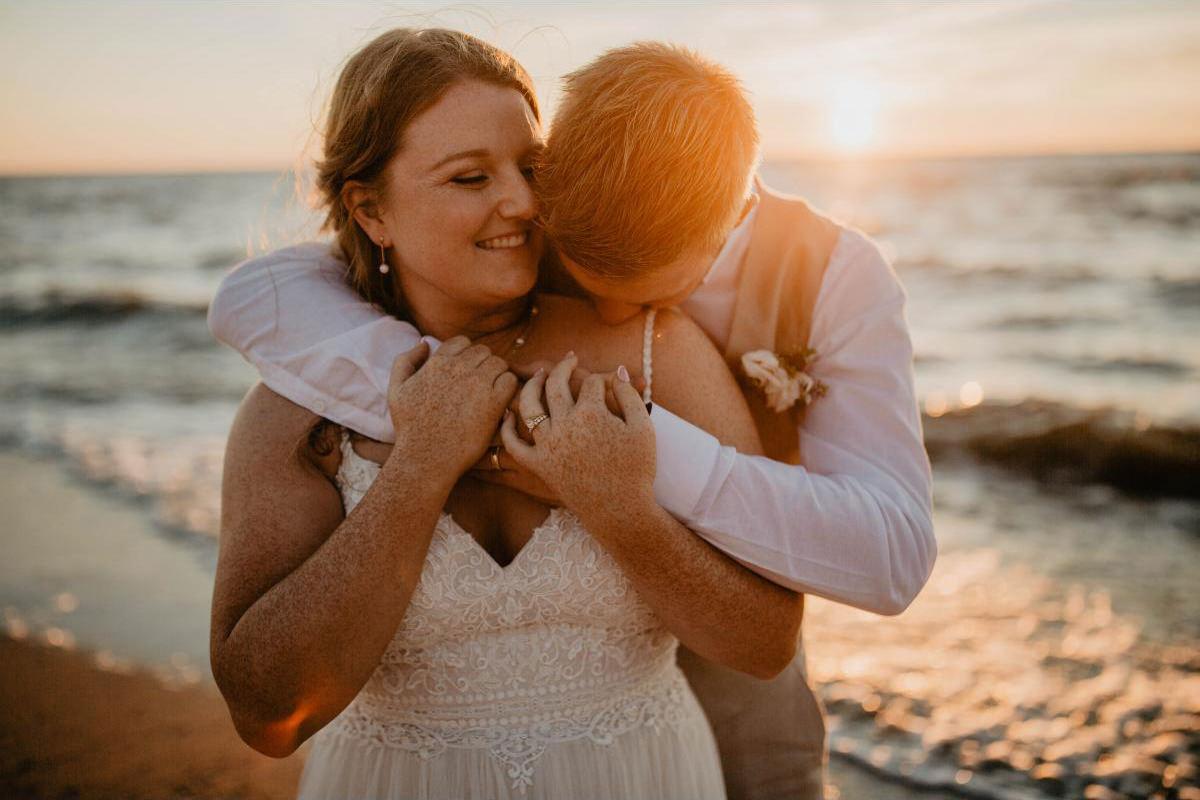
What’s Actually Included (And What’s Not)?
Usually Included:
- Ceremony setup (chairs, arch, basic décor)
- Reception space, buffet or plated meal, open bar
- Day-of coordination
- Basic photography (often 1–2 hours)
- Guest perks for booking group travel
Usually Not Included:
- Full-day photography or videography
- Private events or reception buyouts
- Custom florals or upgraded décor
- Hair, makeup, excursions
- Travel insurance or marriage licence costs
Get clear on inclusions by reading What to Ask the Resort Before You Book.
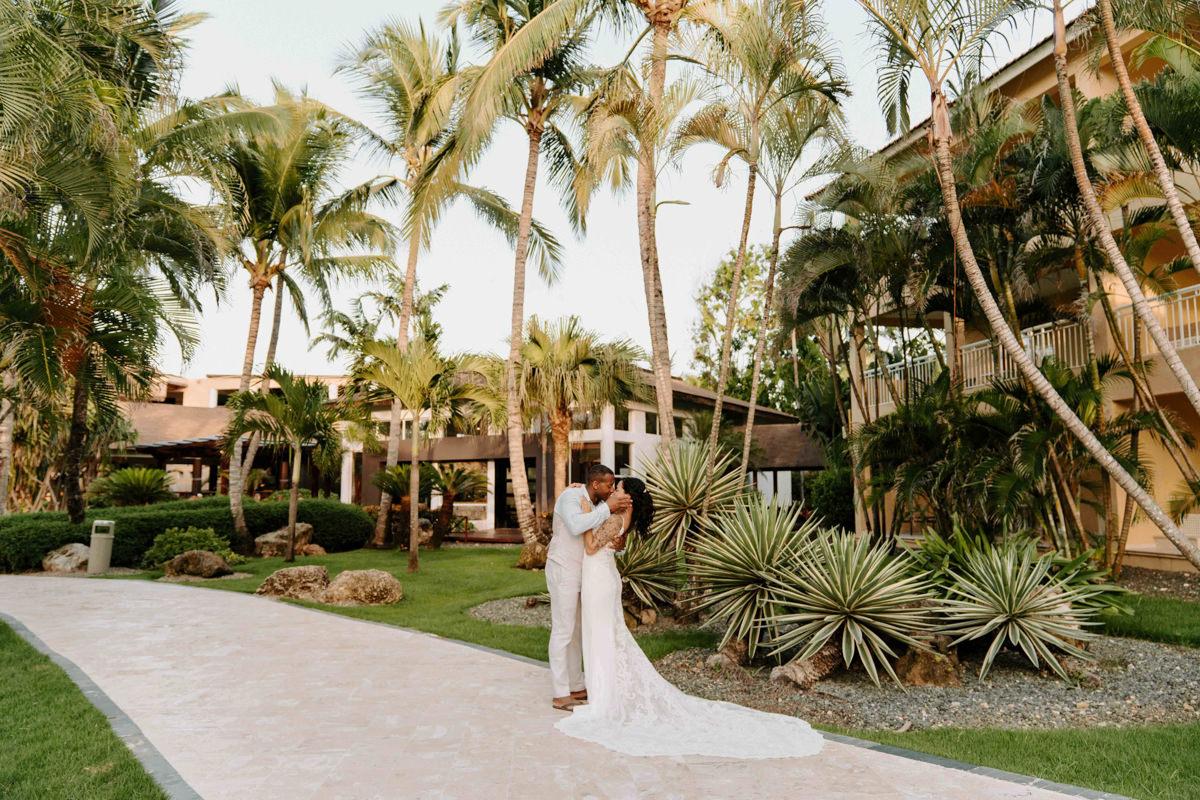
Should You Bring Your Own Photographer?
Short answer: Yes.
If your wedding photos matter to you, don’t gamble on the resort’s rotating photography team. You may not even meet them until the day of your wedding.
Bringing a Canadian wedding photographer ensures:
- A consistent style you already love
- Clear communication and contract protection
- Coverage of your full wedding day (or longer)
- The option for a day-after session at off-resort locations
- Legal protections under Canadian contract law
Compare your options: Should I Hire the Resort Photographer?
Or go deeper: Why You Should Bring a Canadian Photographer to Your Destination Wedding
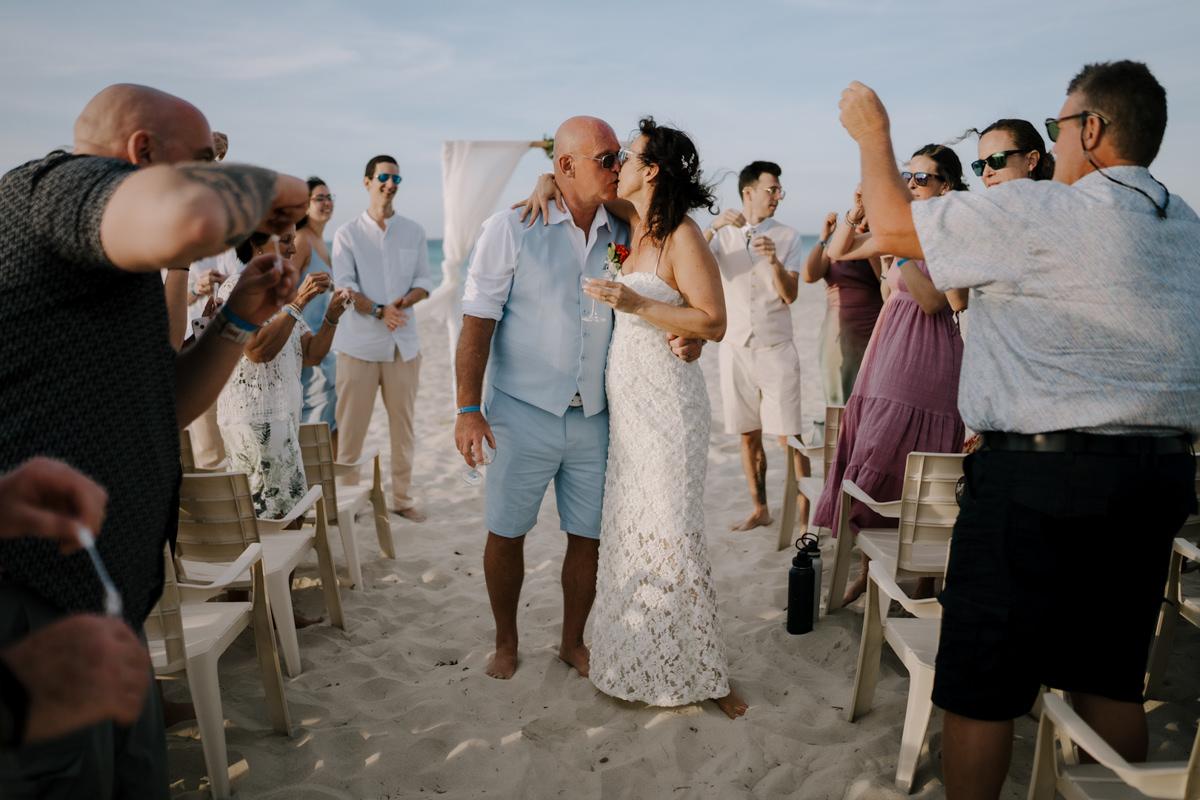
Hidden Costs to Watch For
Even “all-inclusive” weddings can sneak in added fees. Watch for:
- Outside vendor fees (for bringing your own photographer, planner, or DJ)
- Private receptions or upgraded ceremony sites
- Premium décor, florals, or lighting
- Legal marriage documentation
- Travel insurance (see The Best Canadian Travel Insurance Options for Destination Weddings)
- Welcome events, excursions, or extra meals
Want the full picture? Read The Cost of a Destination Wedding vs. a Local Wedding in Canada.
Common Pitfalls (and How to Avoid Them)
Don’t just rely on the resort coordinator. Many are managing dozens of weddings at once. Confirm everything in writing.
Watch your timeline. Most resort ceremonies are between 3–5pm—far from ideal for lighting. Plan your portraits accordingly. (Learn more in Destination Wedding Timelines.)
Read the fine print. Some resorts restrict outside vendors or charge cancellation fees you didn’t expect. Be thorough before you sign.
Worried? Learn from others’ mistakes: Destination Wedding Horror Story: Sandos Playacar
Why You Should Plan a Day-After Session
Many couples regret rushing through their photos on the wedding day. A day-after session allows you to:
- Shoot at golden hour or sunrise
- Choose a more adventurous or scenic location
- Relax without the time pressure of the wedding day
- Wear your outfit again (yes, please!)
Wondering if it’s still trendy? Is “Trash the Dress” Dead—or Just Evolved?
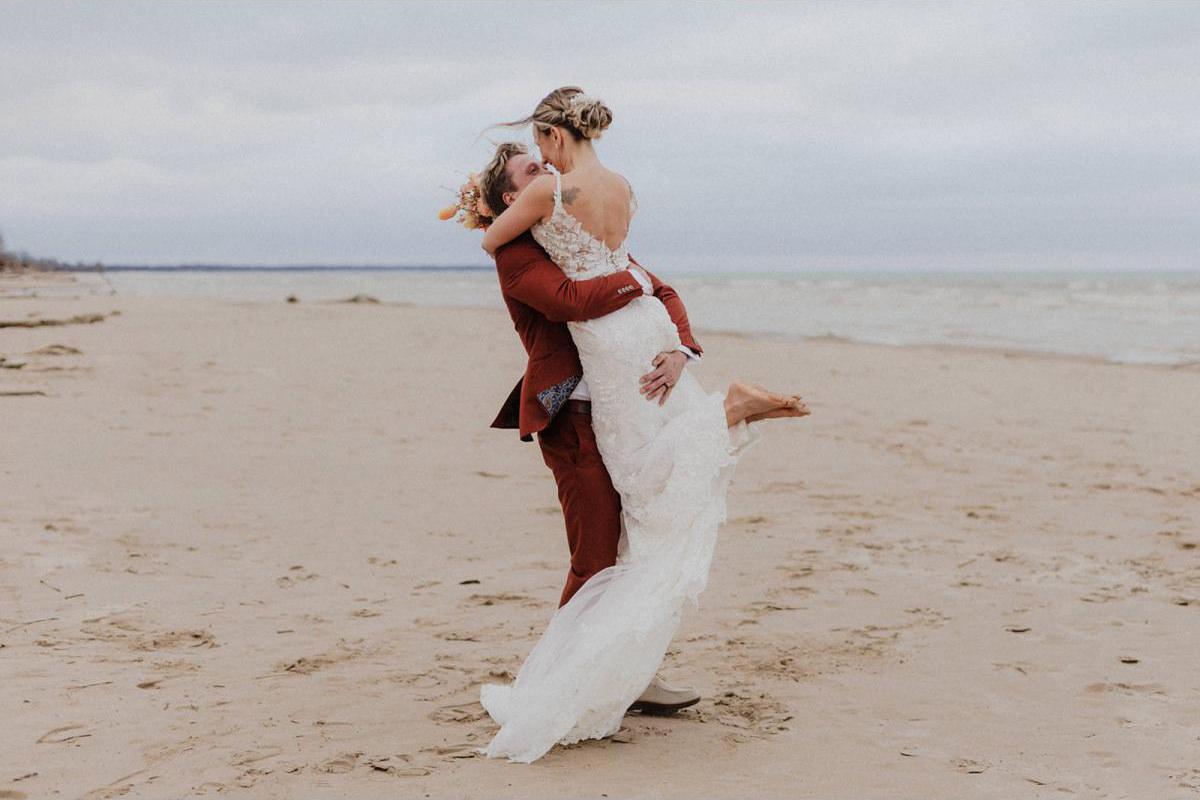
Destination vs. Local Weddings: Quick Comparison
| Category | Local Wedding (Canada) | Destination Wedding |
|---|---|---|
| Average Cost | $40,000 | $20,000 |
| Guests | 80–150+ | 20–50 |
| Planning | Fully customized | Resort-controlled |
| Vendors | Chosen freely | Often bundled or restricted |
| Decor | As detailed as you want | Based on available packages |
Still undecided? Compare your options in Should You Have a Destination Wedding or Elope?
Planning a Destination Wedding? Start Here.
Choosing the right photographer is one of the most important decisions you’ll make. Find someone who knows how to work with resort timelines, tropical light, and the unexpected.
How to Find the Perfect Wedding Photographer: The Ultimate Guide to Making the Right Choice
